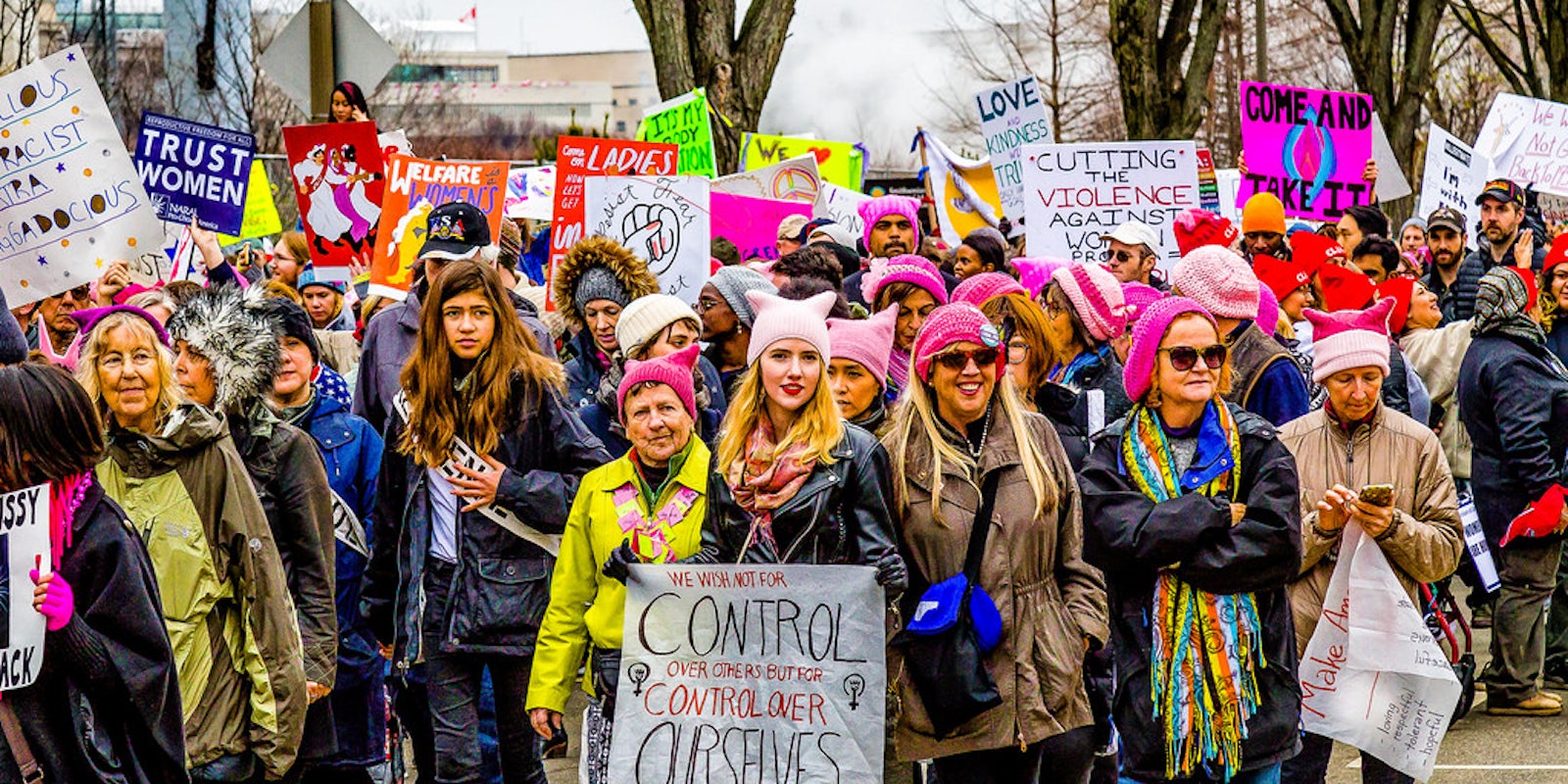After the massive turnouts at Women’s Marches across the globe last month, calls for a general women’s strike quickly began floating around the internet. The Women’s March organizers teased the idea earlier this month but gave no specifics. Then last week, a group of feminist scholars wrote an op-ed in the Guardian calling for a women’s strike on March 8—International Women’s Day—and now Women’s March organizers have also co-signed the date.
Though Women’s March organizers say they’ll soon post more information about what actions women can take for “A Day Without a Woman” strike, the authors of the Guardian op-ed, which include feminist icon Angela Davis, made clear what women and allies can do on March 8:
The idea is to mobilize women, including trans women, and all who support them in an international day of struggle—a day of striking, marching, blocking roads, bridges, and squares, abstaining from domestic, care and sex work, boycotting, calling out misogynistic politicians and companies, striking in educational institutions. These actions are aimed at making visible the needs and aspirations of those whom lean-in feminism ignored: women in the formal labor market, women working in the sphere of social reproduction and care, and unemployed and precarious working women.
The authors call for a more expansive, inclusive feminist movement, and for a strike that isn’t just about taking on President Trump specifically, but about protesting women’s longtime struggles against male violence and to attain reproductive and labor rights. Feminist groups from more than 30 countries are also helping to organize the strike.
Women’s strikes—from Latin America to India—have swept the world in recent years. Last October in Poland, legislators quickly changed their minds and withdrew a restrictive abortion bill after thousands of women went on strike and marched in the streets across the country. The strikes “caused us to think and taught us humility,” a Poland official said.


